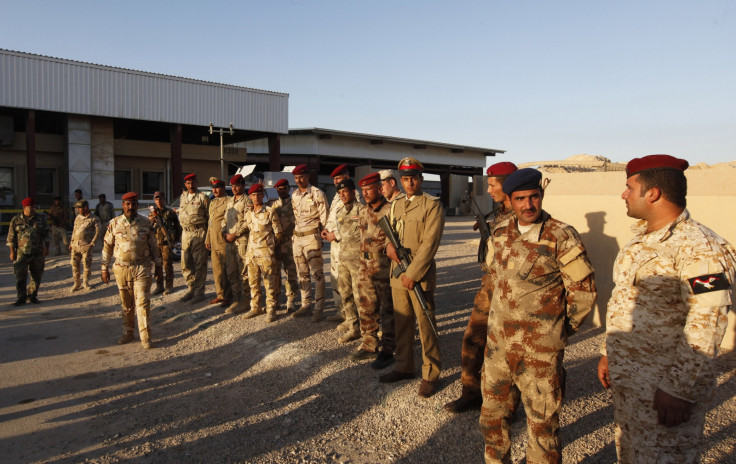Isis: Iraqi army poised to hit back against Islamic State in Anbar as civilians flee

Islamic State (Isis) has continued its assault on the strategic western city of Ramadi as reports emerge of thousands of refugees fleeing the city towards Baghdad.
The BBC reported that the terrorist group had mounted a series of suicide bombings on a government compound in Ramadi, a key Sunni city 70km from Baghdad in the heart of Iraq's Anbar Province.
The bombings come a day after a senior Iraqi official warned that the city could fall to IS "within hours" as the group seized control of three towns on the western outskirts, Albu Soda, Albu Ghanem and parts of Soufia, which lead to central Ramadi.
He called for the Iraqi Security Forces (ISF) – the country's national army – to send more troops to the province.
Militants seized control of areas north of Ramadi at the end of last week while areas to the south were taken earlier this year. As a result, CNN reported that thousands of civilians were fleeing the city across the only bridge that led to Baghdad and the east of the country.
But another senior Iraqi commander, Brigadier General Sa'ad Ma'an, seemed to contradict that view on Thursday (16 April), telling Iraq's Al-Sawmariyah News that the security forces now have "complete control" of Ramadi.
"Ramadi is completely in the hands of the security forces," he said, adding that the areas under the control of IS "lie outside the perimeters of Ramadi".
Ma'an added that the ISF was preparing to launch a military operation to free both areas.
Fighting for dominance
Indeed while IS is undoubtedly taking ground in Anbar – a majority Sunni area that has long been associated with violent insurgency and was one of the terror group's first strongholds in Iraq – experts say that the Iraqi Security Forces remain in control of key buildings, including the Iraqi Army Brigade HQ, Anbar Operational Command Centre and the city government complex.
"The three pretty much serve as the government and military nucleus of the Anbar province. Isis has tried to breach them with almost daily attacks over the past months, but they never succeed because the positions are so heavily fortified defensively. They even tried to unsuccessfully dig a 700m tunnel into the gov complex two months ago," said Aaron Balshan, an intelligence analyst at the Tel Aviv-based consultancy Levantine Group.
Balshan said that an increase in coalition air strikes was expected in Anbar province, with the US conscious of the proximity of the al-Asad base – around 100km from Ramadi – where over 300 US soldiers are still based. Equally, the US has successfuly persuaded Baghdad not to permit the Shia militias that were so key to taking Tikrit to fight in Anbar.
"America just pressured the Iraqi government to prevent large contingents of Shiite militiamen from going into Anbar, so losing Ramadi right after would be a big hit to US leverage, influence and prestige. It would also severely delay ambitious American timetables for an offensive on Mosul," he said.
Baghdad is also keen to take the fight to IS in an area in which the extremist group have found support amongst local Sunni tribes. Iraqi Prime Minister Haider Al-Abadi has been reaching out to local power-brokers in Anbar, recently giving the region the power to elect its own governor and permitting tribesmen to carry weapons.
Baghdad is seeking to woo Sunni tribes in both Anbar and Mosul in the north. As in Tikrit, it is hoped that empowering local Sunnis and preventing sectarian attacks by Shia militias – which have been heavily involved in operations against IS so far – will hit IS support in the mostly Sunni city of Mosul, allowing the ISF to take it more easily.
Dominance in the region has long been a goal for IS, which launched a wave of suicide bombings in March that killed 10 and injured 30. One of the bombers was reported to be an Australian Muslim teenager, Jake Bilardi, who joined IS after leaving his home in Melbourne.
© Copyright IBTimes 2025. All rights reserved.





















